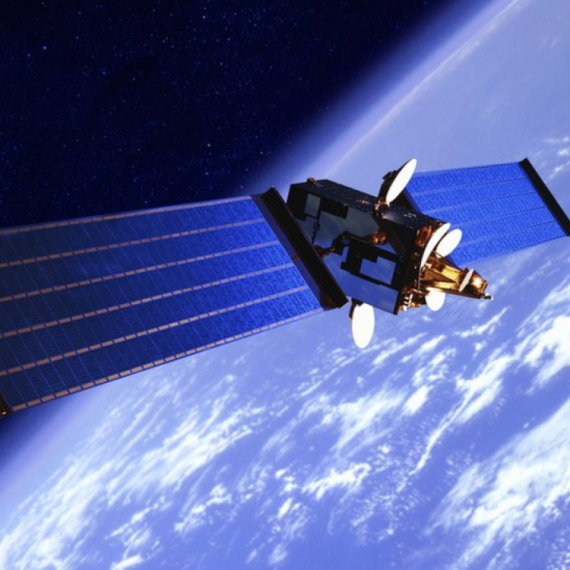Independence day
Monday, 25.02.2008.
16:32

Independence day For the UN, it was yet another sign of its irrelevance and helplessness on issues of major international importance. For the European Union, it was the beginning of the largest “out of area” challenge it has yet undertaken. While all the countries supporting independence have repeated endlessly that Kosovo is a unique case and not a precedent for anywhere else, this has provided little comfort to countries facing break-away challenges such as Spain (the Basques); Iraq (the Kurds);China (Taiwan); Russia (Chechnya) and Bosnia (the Republika Srpska). At the same time, regions like Abkhazia and South Ossetia in Georgia are busy preparing their own independence resolutions, almost assuredly with Russian support. The Kosovo Albanians, led by Hashim Thaci, played their hand very well. They coordinated fully with the European Union and the United States and showed patience in the face of numerous delays. Although it is officially called a “Unilateral Declaration of Independence (UDI),” there is actually nothing unilateral about it at all. All the actions and their sequence were agreed upon with the EU and the US every step of the way. We can expect that Thaci in the coming months will continue to take the “high road” and to say all the right words about embracing the Ahtisaari Plan and continuing his efforts to reach out to the Serbian community. And why not? He knows full well that the Kosovo Serbs will reject all attempts at reconciliation and therefore it costs him absolutely nothing to make the gestures. Moreover, he knows that it is critical to do so in order to maintain the support of the US and the EU. The key test for the Thaci government will come a few months from now, however, when the euphoria about independence has faded away and it has to get down to the everyday business of government. It faces challenges of enormous proportions. The economy is more or less a basket case, far too dependent on international assistance and remittances from workers abroad. The Kosovo Albanian political parties agree only on independence and little else. Working together for them will be a challenge. The younger generations of Kosovo Albanians still suffer from the impact of greatly reduced educational opportunities for the 1990s, resulting in a shortage of higher-educated specialists. Given the lack of opportunities in the Milosevic era for Albanians, there is also a general lack of bureaucratic and managerial expertise. The level of unemployment is high and foreign investment prospects fairly low. Finally, the new country of Kosovo faces a hostile northern neighbor (Serbia) blocking the key access route to Western Europe, as well as severe internal challenges to its sovereignty from the Kosovo Serbs. The European Union has now (somewhat reluctantly) taken on the challenge of providing the international oversight of this process, knowing full well its complexity and high cost. Moreover, it has done so remembering how it failed earlier tests of its capabilities in the initial phases of the breakup of Yugoslavia. The EU Mission in Kosovo (EULEX) is replacing an UNMIK Mission which was in many ways a failure. It would be a difficult job under any circumstances, but the reality is that the overwhelming amount of its management time and resources for the foreseeable future will not be devoted to nation-building at all, but dealing with the problems, provocations, and challenges of the Kosovo Serbs and Serbia itself. In this regard, most Western analysts (and regretfully, even some moderate Serbian politicians who should know better) are making a very dangerous and incorrect assumption. This is that the Serbian anger over the UDI is sort of like a summer storm, which will pass over. All one has to do, they think, is hunker down, let the Serb nationalists “vent” and get it out of their system. Then, slowly it will be back to business as usual both within Kosovo (where a slow process of reconciliation with the Serbian areas will take place) and with Serbia itself. This is so not the case. For Serbs like Prime Minister Kostunica and the Radicals, the battle for Kosovo is not even close to being over. It has just entered a different phase. While Serbia will continue to protest any recognition of Kosovo in the international arena, the real battleground is in Kosovo itself. Serbia will use every possible means (short of directly sending in its armed forces) to demonstrate its continued sovereignty over Kosovo. Even though Kosovo Serb interactions with UNMIK, the Provisional Government, and the Parliament have never been good, it is about to get much worse. This means, for example, it is hard to see how any Serb will be able to participate in the Kosovo Parliament; participate in the Kosovo Government in any capacity (including taking a salary as a policeman, doctor, or anything else); or even work for the new EU Mission to Kosovo or the outgoing UNMIK organization. It is even hard to imagine how any Serb will be able to work in Kosovo for any foreign Embassy which represents a country recognizing Kosovo independence. Kosovo Serbs will not pay any taxes to the new government. While some Serbs, particularly in the Southern areas of Kosovo, may wish to do some of the above, they will be very strongly discouraged from doing so. They will be seen as “quislings,” traitors to their own people. Serbia will visibly establish its own ministerial offices in Kosovo and be seen as performing the normal functions of government. The challenge for the new EU Mission, for KFOR, and for the Kosovo Albanian Government is just how far they will allow the Serbs to demonstrate these signs of sovereignty and similar provocations. The temptation will be to give the Serbs at least initially a lot of leeway, with the (mistaken) hope that over time, tensions will reduce and gradually the situation will improve. Again, this sort of thinking is based on the faulty premise that the battle is essentially over. It isn’t. In Serbia itself, the moderates and those still wanting a European future continue over and over again to find themselves wrong-footed, on the defensive, and forced to concede more and more ground. In the coming weeks virtually all the initiative will be with Prime Minister Kostunica. This includes what additional steps (besides angry rhetoric, recalling Ambassadors, and restricting access of the Ambassadors residing in Belgrade) he intends to take against those countries which have recognized Kosovo and particularly those such as the U.S., which he holds most accountable. It also includes just how far he and others will encourage Kosovo Serbs to go in making the ongoing partition of Kosovo both hard and provocative. This is a dangerous and complex time for Serbian moderates still wanting a European future. They are caught between being perceived as being insufficiently patriotic at a critical time in their country’s history or being perceived as too weak and indecisive to fully exercise the mandate they received so recently in the Presidential election. They are unwilling passengers on a train of national outrage which is driven by others at a speed and in a direction not of their choosing. They watch helplessly as Embassies are deliberately permitted to be attacked and their goal of moving Serbia into Europe fades in the distance. While it is easy to rationalize getting on this train, finding a way to get off it is much more difficult. Kosovo Albanians celebrate (FoNet) On Sunday, February 17, one chapter in the history of Kosovo came to an end and another started. For Kosovo Albanians, it was the day they received their long-awaited independence and they celebrated accordingly. For the Serbs, it was an unjustified, illegal theft of the cradle of their civilization. William Montgomery This is a dangerous and complex time for Serbian moderates still wanting a European future. They are caught between being perceived as being insufficiently patriotic at a critical time in their country’s history or being perceived as too weak and indecisive to fully exercise the mandate they received so recently in the Presidential election.
Independence day
For the UN, it was yet another sign of its irrelevance and helplessness on issues of major international importance. For the European Union, it was the beginning of the largest “out of area” challenge it has yet undertaken. While all the countries supporting independence have repeated endlessly that Kosovo is a unique case and not a precedent for anywhere else, this has provided little comfort to countries facing break-away challenges such as Spain (the Basques); Iraq (the Kurds);China (Taiwan); Russia (Chechnya) and Bosnia (the Republika Srpska).At the same time, regions like Abkhazia and South Ossetia in Georgia are busy preparing their own independence resolutions, almost assuredly with Russian support.
The Kosovo Albanians, led by Hashim Thaci, played their hand very well. They coordinated fully with the European Union and the United States and showed patience in the face of numerous delays. Although it is officially called a “Unilateral Declaration of Independence (UDI),” there is actually nothing unilateral about it at all. All the actions and their sequence were agreed upon with the EU and the US every step of the way.
We can expect that Thaci in the coming months will continue to take the “high road” and to say all the right words about embracing the Ahtisaari Plan and continuing his efforts to reach out to the Serbian community. And why not? He knows full well that the Kosovo Serbs will reject all attempts at reconciliation and therefore it costs him absolutely nothing to make the gestures. Moreover, he knows that it is critical to do so in order to maintain the support of the US and the EU.
The key test for the Thaci government will come a few months from now, however, when the euphoria about independence has faded away and it has to get down to the everyday business of government. It faces challenges of enormous proportions. The economy is more or less a basket case, far too dependent on international assistance and remittances from workers abroad. The Kosovo Albanian political parties agree only on independence and little else. Working together for them will be a challenge.
The younger generations of Kosovo Albanians still suffer from the impact of greatly reduced educational opportunities for the 1990s, resulting in a shortage of higher-educated specialists. Given the lack of opportunities in the Milosevic era for Albanians, there is also a general lack of bureaucratic and managerial expertise. The level of unemployment is high and foreign investment prospects fairly low. Finally, the new country of Kosovo faces a hostile northern neighbor (Serbia) blocking the key access route to Western Europe, as well as severe internal challenges to its sovereignty from the Kosovo Serbs.
The European Union has now (somewhat reluctantly) taken on the challenge of providing the international oversight of this process, knowing full well its complexity and high cost. Moreover, it has done so remembering how it failed earlier tests of its capabilities in the initial phases of the breakup of Yugoslavia.
The EU Mission in Kosovo (EULEX) is replacing an UNMIK Mission which was in many ways a failure. It would be a difficult job under any circumstances, but the reality is that the overwhelming amount of its management time and resources for the foreseeable future will not be devoted to nation-building at all, but dealing with the problems, provocations, and challenges of the Kosovo Serbs and Serbia itself.
In this regard, most Western analysts (and regretfully, even some moderate Serbian politicians who should know better) are making a very dangerous and incorrect assumption. This is that the Serbian anger over the UDI is sort of like a summer storm, which will pass over. All one has to do, they think, is hunker down, let the Serb nationalists “vent” and get it out of their system. Then, slowly it will be back to business as usual both within Kosovo (where a slow process of reconciliation with the Serbian areas will take place) and with Serbia itself.
This is so not the case. For Serbs like Prime Minister Koštunica and the Radicals, the battle for Kosovo is not even close to being over. It has just entered a different phase. While Serbia will continue to protest any recognition of Kosovo in the international arena, the real battleground is in Kosovo itself. Serbia will use every possible means (short of directly sending in its armed forces) to demonstrate its continued sovereignty over Kosovo. Even though Kosovo Serb interactions with UNMIK, the Provisional Government, and the Parliament have never been good, it is about to get much worse.
This means, for example, it is hard to see how any Serb will be able to participate in the Kosovo Parliament; participate in the Kosovo Government in any capacity (including taking a salary as a policeman, doctor, or anything else); or even work for the new EU Mission to Kosovo or the outgoing UNMIK organization. It is even hard to imagine how any Serb will be able to work in Kosovo for any foreign Embassy which represents a country recognizing Kosovo independence.
Kosovo Serbs will not pay any taxes to the new government. While some Serbs, particularly in the Southern areas of Kosovo, may wish to do some of the above, they will be very strongly discouraged from doing so. They will be seen as “quislings,” traitors to their own people. Serbia will visibly establish its own ministerial offices in Kosovo and be seen as performing the normal functions of government.
The challenge for the new EU Mission, for KFOR, and for the Kosovo Albanian Government is just how far they will allow the Serbs to demonstrate these signs of sovereignty and similar provocations. The temptation will be to give the Serbs at least initially a lot of leeway, with the (mistaken) hope that over time, tensions will reduce and gradually the situation will improve. Again, this sort of thinking is based on the faulty premise that the battle is essentially over. It isn’t.
In Serbia itself, the moderates and those still wanting a European future continue over and over again to find themselves wrong-footed, on the defensive, and forced to concede more and more ground. In the coming weeks virtually all the initiative will be with Prime Minister Koštunica. This includes what additional steps (besides angry rhetoric, recalling Ambassadors, and restricting access of the Ambassadors residing in Belgrade) he intends to take against those countries which have recognized Kosovo and particularly those such as the U.S., which he holds most accountable.
It also includes just how far he and others will encourage Kosovo Serbs to go in making the ongoing partition of Kosovo both hard and provocative. This is a dangerous and complex time for Serbian moderates still wanting a European future. They are caught between being perceived as being insufficiently patriotic at a critical time in their country’s history or being perceived as too weak and indecisive to fully exercise the mandate they received so recently in the Presidential election.
They are unwilling passengers on a train of national outrage which is driven by others at a speed and in a direction not of their choosing. They watch helplessly as Embassies are deliberately permitted to be attacked and their goal of moving Serbia into Europe fades in the distance. While it is easy to rationalize getting on this train, finding a way to get off it is much more difficult.



































Komentari 13
Pogledaj komentare